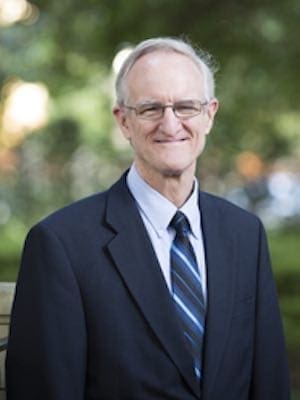Southern Baptists and women have again been in the news recently. New Southern Baptist literature, the Baptist Center for Ethics has reported, is critical of the practice of women deacons.
Read that again, not the old tirades against women pastors, but the next item in the evolving fundamentalist agenda of the Southern Baptist Convention: no women deacons.
Having taught Baptist history for years, I could pull out the evidence for women deacons in our heritage. But our Reformed/Calvinist colleagues would tell us that the evidence is misleading. Women deacons are permissible, some of them contend, when the church also uses the biblical office of elder. In this case, women don’t have spiritual authority over men. Women deacons can serve tables and male elders can make the decisions, according to their mental gymnastics.
We are told that the move toward women deacons is a result of the liberalizing of Baptist life among “moderate” Baptists in the South and American Baptists in general.
But some enlightened Baptist women were actually asking for biblical equality several decades earlier.
From 1948-1950 Maud Turman, a member of Second-Ponce de Leon Baptist Church in Atlanta, wrote a series of letters to the board of deacons at her church and recommended the names of several women for service as deacons.
The deacon chair admitted that the women would probably do a better job than most of the men in the church, but such a “radical” change had to come at the request of the whole church.
Turman’s response revealed some of the absurdities of the current debate over deacons.
–Women deacons are not a part of our tradition. We would have to change our bylaws. Baptists–who don’t acknowledge the role of authoritative tradition–have, of course, never been shy to say “we have never done that before.” Turman reminded her deacons: “By-Laws are not like the laws of the Meads and Persians, and can easily be changed.” What needed to be changed were rather the minds of the stubborn men of the church.
–Democratic Baptists? Turman thought it ironic that non-congregational denominations allowed women to serve in leadership positions in the church but Southern Baptists, claiming to be the most democratic and congregational (and thus most biblical), refused deacon service to women.
–Duplicate the New Testament church? When Maud Turman was told by her pastor that the New Testament didn’t have women deacons, her bold response was, “Does it not seem that we should have made some progress in nearly 2,000 years?” She exposed the impossibility of being an exact replica of a New Testament church (how often have you heard the Baptist mantra, “We are the New Testament church” because Jesus was baptized by John the Baptist?) by noting that New Testament churches did not have large church buildings, Sunday schools and mission organizations like the Woman’s Missionary Union. The early church, Turman finally reminded her pastor, didn’t have fine salaries like modern Baptist pastors.
–Women deacons in the New Testament. According to Turman, the criterion for the use of women deacons was not whether the churches in the New Testament had them, but whether the practice “is in the spirit of the Bible.” The Baptist laywoman then told her deacons that the New Testament did indeed have women deacons such as Phoebe (Rom 16:1).
–A dichotomy of sacred and secular authority? Turman knew that Baptist congregations were constantly exhorted to be Christian, not just on Sunday but every day of the week. There should be no dichotomy of the sacred and secular for Christians. So why are Christian men beginning to recognize that women are equal in all walks of life except in the life of the church?
Women in the church “have served faithfully for more years than most of our young deacons have lived,” Turman gently chided her male deacons. If the call of a deacon is based on a life of service, Turman knew which gender had provided most of the service in Baptist churches. To quarantine spiritual authority for men violated Galatians 3:28 that indicated the spiritual equality of all believers.
Maud Turman lost her argument to her church’s male deacons, but her common-sense argument is sound. What doesn’t make any sense is why those Southern Baptist leaders who argue against women deacons just don’t jump ahead and add some more links to their chained fence and tell the women to keep silent in the church once and for all. At least then they might claim to be consistent in their duplication of the Bible.
Doug Weaver is assistant professor of religion at BaylorUniversity.

